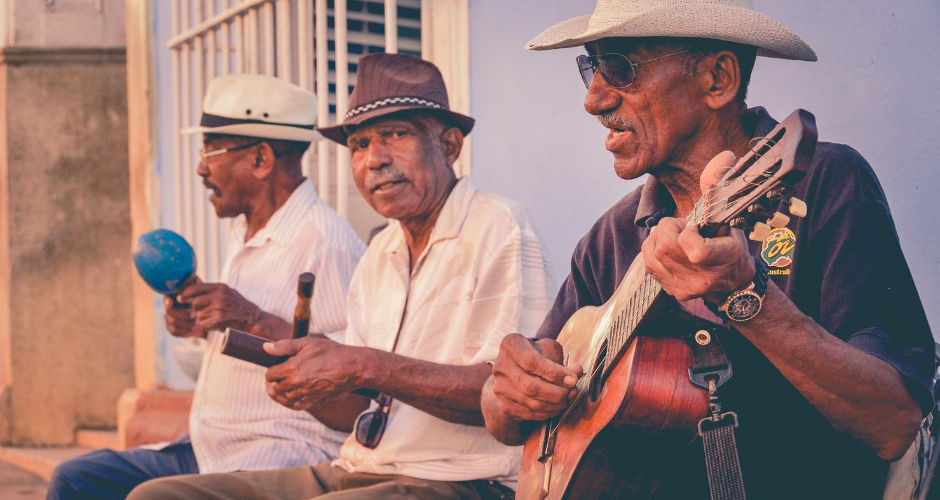Original post date: 11/20/2015
Can something usually intended for leisure be combined for therapy?
Music is proving to be extremely helpful in medicine by providing behavioral and emotional support for various patients, improving their disposition and quality of life. For example, it was found that music can be able to calm anxiety prior to a heart procedure. For the elderly, the iPod Music & Memory Project seen in the documentary Alive Inside shows the amazing ways beloved music can positively affect folks with dementia. It’s incredible to discover the many ways that music can help patients with various medical conditions, especially in the elderly.
Music Helps People With Dementia
Dementia is a combination of different behavioral features that affect the thought, perception, mood, and capacity of elders. Because it is very complex and can manifest in many different ways, management of this condition can be complex and varies from one elderly to another. But what this study** found out was that in the elderly with dementia, the response to music is unaffected even in severe cases. Put more strongly, music is helpful and can reduce anxiety, agitation and improve the behavioral well-being of affected elders. A meta-analysis of several studies on music therapy and dementia*** showed that it was helpful for the elderly with problems in cognition and depression and more effective when there was interaction.
Many studies have already established that music benefits people with dementia, but not so much research has been done as to what kind of music is helpful for them. This study**** decided to explore that by determining whether a personalized music playlist is helpful in providing a positive emotional response and behavioral changes in people with dementia. Not only that, but they also plan to check the MRI of some patients to see if there were any significant changes in the brain.
Music Controls Anxiety
Some medical procedures can be frightening. Having an illness can already cause anxiety for some, and this is compounded when you have to undergo a medical procedure such as an operation or an angiography. A study was done and reported in the European Journal of Cardiovascular Nursing on music during coronary angiographic procedures showed that music can be a very supportive source of sound that stimulates and maintains relaxation. The study tried to see if patient-specific music from a pillow speaker would decrease anxiety compared to music heard from speakers on the wall and to those with sounds of a busy lab. It showed that anxiety decreased significantly and well-being increased with music, with the group with patient-focused music from the pillow speaker having more favorable outcomes. The loudspeaker music seemed to distract the staff working in the lab.
There also was a study in 2015 in The Lancet Medical Journal to see if music is an aid in post-op recovery. Their findings after the study showed that music can reduce pain and anxiety during the postoperative period with music being beneficial even when the patients were under general anesthesia. It was found to be a ‘safe, non-invasive, and inexpensive form of therapy.
Why Music Works
A study* was done to determine what makes people listen to music, and what drives people’s taste in music. Named the “Shuffle Play,” it was found that most people listen to music because they like to and because it evokes positive feelings, although this does not influence people’s choice in music as much. Here, it was highlighted that listening to music is involved in more than two-thirds of a person’s day, which makes it very interwoven in people’s lives and daily activities. These kinds of studies show that music can influence and be influenced by our choices. It stimulates our brain and our brain in return reacts as a response. This is why it is important to keep our brains constantly active. Not only can music shuffle your feet, but it can also shuffle your mindset as well. This has a huge impact and shows how music can be powerful.
ElderConsult providers attempt to provide the highest level of comfort and quality of life for our patients. Music is one comfort measure that can be added to the medical prescription and it can be very soothing and comforting to our elderly patients as well as providing a pleasant environment for the caregiver as well. From the studies mentioned above, it seems that personalized music and not just random music is what is truly helpful. Thus, when using music as a form of therapy, it is very individualistic. To provide a calming environment, you can create a playlist on your phone or computer; just Google ‘create a music playlist’ and create your own anxiety-reducing playlist. Don’t forget to create a playlist of music for a loved one and help them utilize it.
How has music improved your or a patient’s experience? Let us know on our website or our FB page and share your story.
Elizabeth Landsverk, MD
Geriatric Specialist
*https://www.ncbi.nlm.nih.gov/pmc/articles/PMC7004375/
**https://pubmed.ncbi.nlm.nih.gov/25553932/
***https://pubmed.ncbi.nlm.nih.gov/28025173/
****https://clinicaltrials.gov/ct2/show/NCT04132362?term=music&draw=2&rank=3

Elizabeth (Dr Liz) has over twenty years of experience in providing medical care to the elders. She is board-certified in Internal Medicine, Geriatric Medicine and Palliative Care Medicine. Dr Landsverk founded ElderConsult Geriatric Medicine, a house calls practice, to address the challenging medical and behavioral issues often facing older patients and their families.

